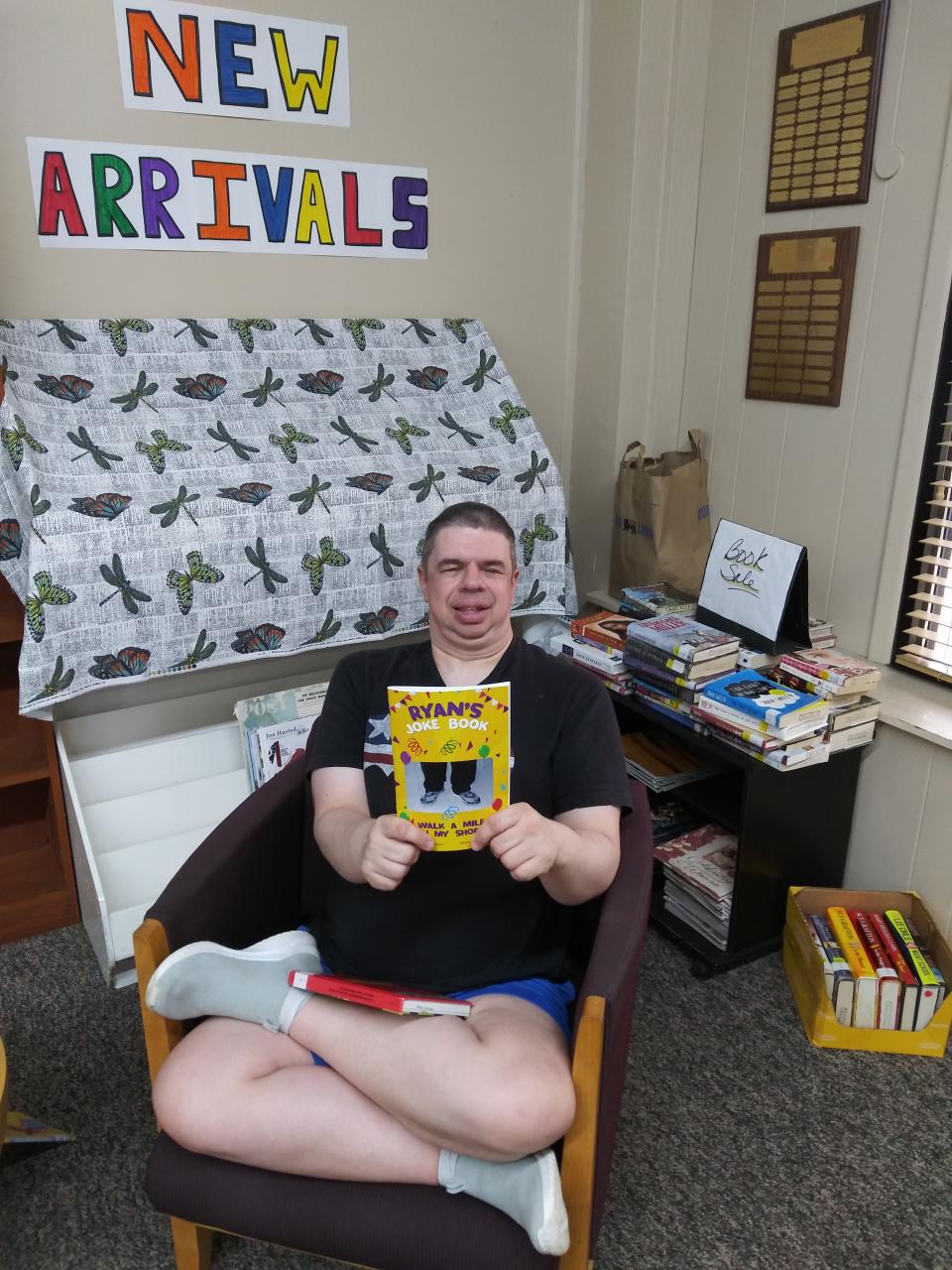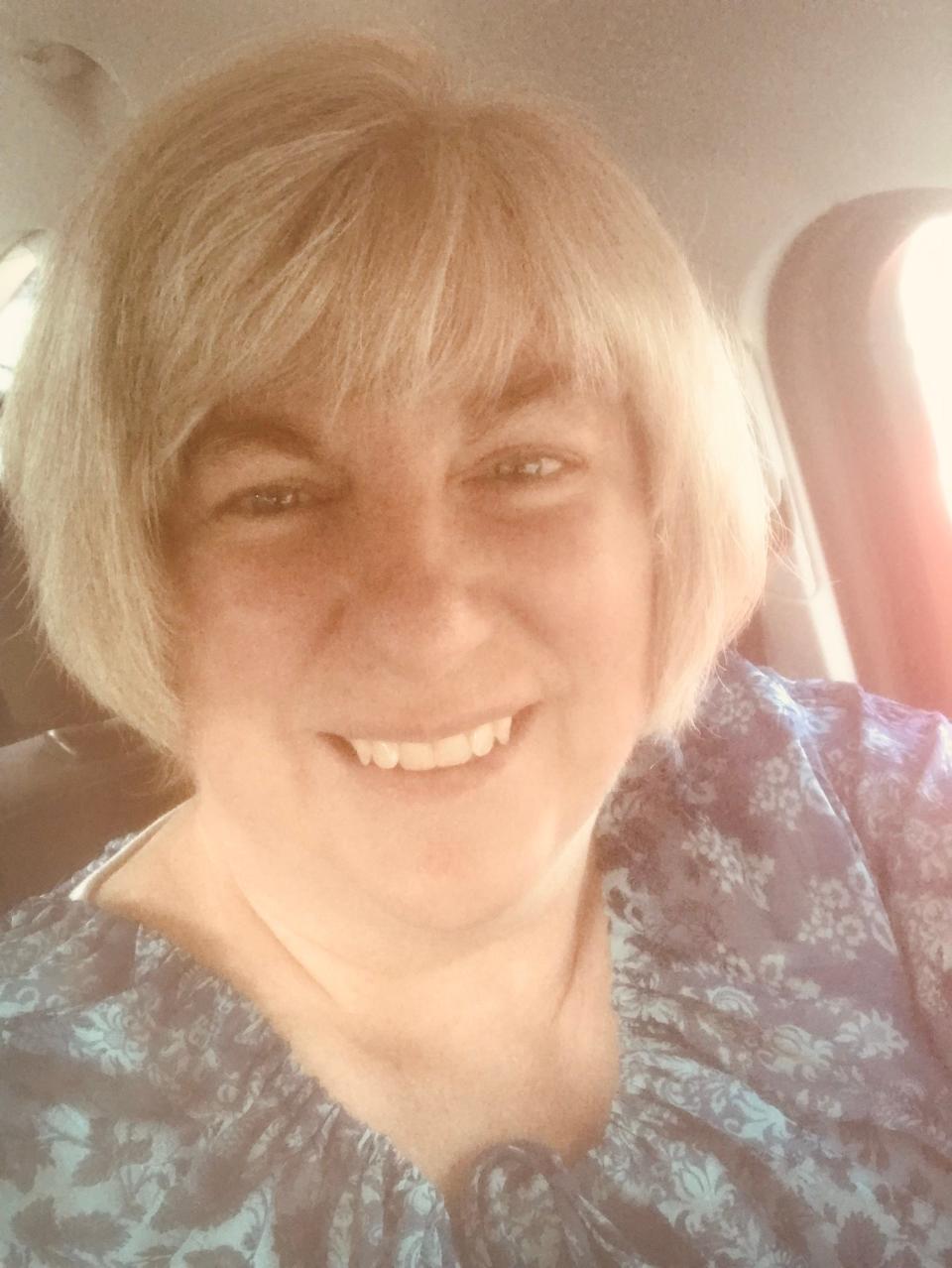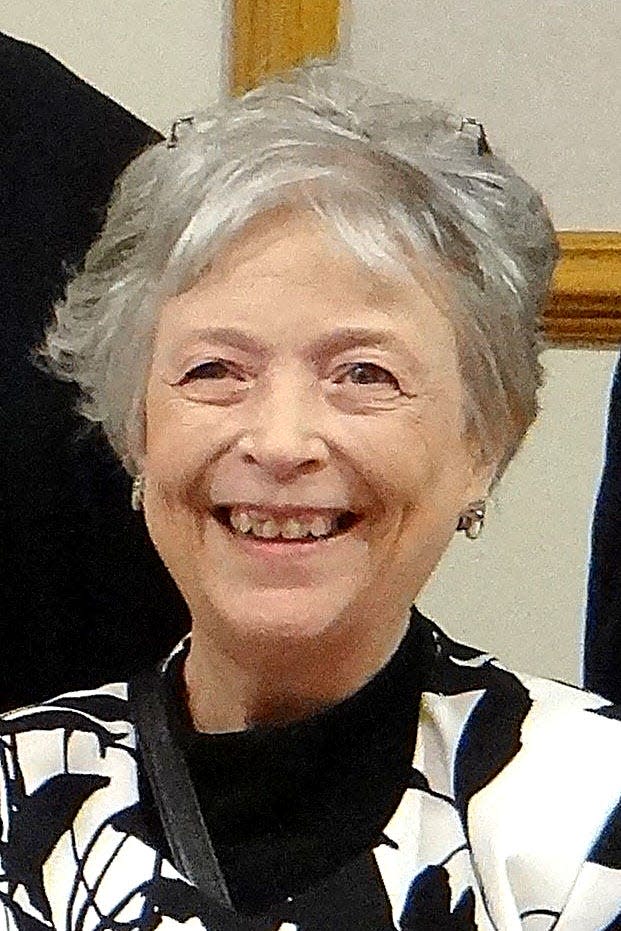Disability Pride Month: A perfect time to eliminate stigmas, focus on inclusion
“There is no greater disability in society than the inability to see a person as more.” —Robert M. Hensel.
Disability Pride Month (July) is a time to promote awareness, educate about disability culture and ableism, focus on inclusion, discuss the need to eliminate stigma and discrimination and to change how we refer to disabled people.
Disability should be celebrated, even viewed as a gift, as it is only one part of who a person is, what comprises his/her multidimensional identity.
Earlier this month, The Daily Record and the Ashland Times-Gazette shared the story of Ryan Troyer, a disabled individual in Holmes County.

Ryan brings joy and laugher to many others, sharing jokes verbally and in a book he wrote. Despite having Williams syndrome, Ryan contributes to his community and makes a positive difference.
Ashland's Stacey Roberts gets degree, becomes licensed social worker
Stacey Roberts, another disabled individual, is proud of what she has accomplished.
Roberts, an Ashland resident and an AHS graduate, earned her social work degree from the University of Akron, and is a licensed social worker.

She has been employed as a social worker in hospice, hospital, and long-term care settings. Roberts is involved with Pathways Peer Support and is in the process of receiving certification as a peer recovery supporter.
Roberts has a psychiatric disability, schizophrenia coupled with complex childhood trauma. She believes that by revealing who you are “behind the diagnosis,” you can educate people and work toward blocking the us-versus-them mentality, and challenge stereotypes.
Eliminating stigma is paramount, promoting living without shame if you have a psychiatric disability. For those who are non-disabled, eliminating stigma toward disabled individuals sends the message that “you don’t need to be afraid of someone with a psychiatric disability,” according to Roberts.
“Stigma must be chipped away at the local, state, and national levels," she said. By sharing stories and connecting, there is “human-to-human contact,” not "us and them.”
Disability Pride Month, a time to advocate for others
Roberts is an advocate who has shared her story at conferences in Ohio, as well as in Wales — where she worked with and learned from Ron Coleman and Karen Taylor, Hearing Voices Network of the United Kingdom — and in her writing endeavors.
She facilitates two support groups at Appleseed Community Mental Health Center, contract services funded by the MHRB of Ashland County.
The Celebrate Your Mind support group is grounded in the Hearing Voices Network philosophy. The Part of Me support group addresses dissociation among some individuals facing mental health challenges.
Roberts served on the board of the Appleseed Community Mental Health Center for several years.
She distinguishes between mental illness and mental health. Having a mental illness does not “define who you are, your capabilities to live life.” She notes that mental illness crosses “all walks of life, transcends socioeconomic classes and other sociodemographic factors.” Mental health refers to “living life in a way that is meaningful and purposeful.”
Stacey notes that people differ in how they define their own personal recovery, yet emphasizes that “recovery for all is possible.”
While Roberts does not embrace her psychiatric disability in “defining who I am,” she “lives with it,” and thrives.
What can you do? Look beyond disability to forge connections

Our community should look beyond a disability — invisible and visible, psychiatric and physical — and work to forge connections between the disabled and non-disabled.
We are more alike than different. What lies behind a disability is a human being, one who is more than just a label; one who is more than just what he/she can do or cannot do.
As a community, we need to be educated, made more aware of disability culture and the nontruths, as noted by Roberts, that emerge in social media about mental illness and promote stigmatization.
Diana Spore, Ph.D., is an advocate for disabled individuals, those living with dementia, people who face significant mental health issues, and for those in these three groups who are victims of crime. She lives in Ashland and is a consultant with the Adult Advocacy Centers in Columbus
This article originally appeared on Ashland Times Gazette: July is Disability Pride Month, Ashland's Stacey Roberts shares story

